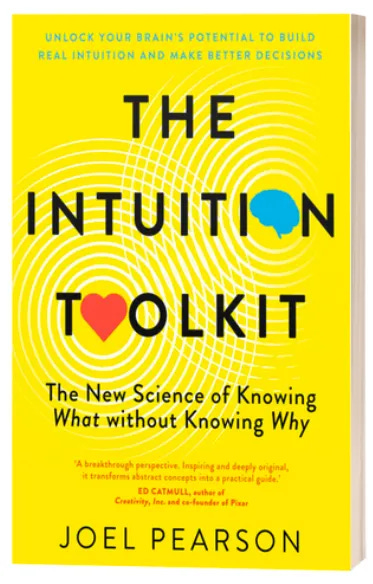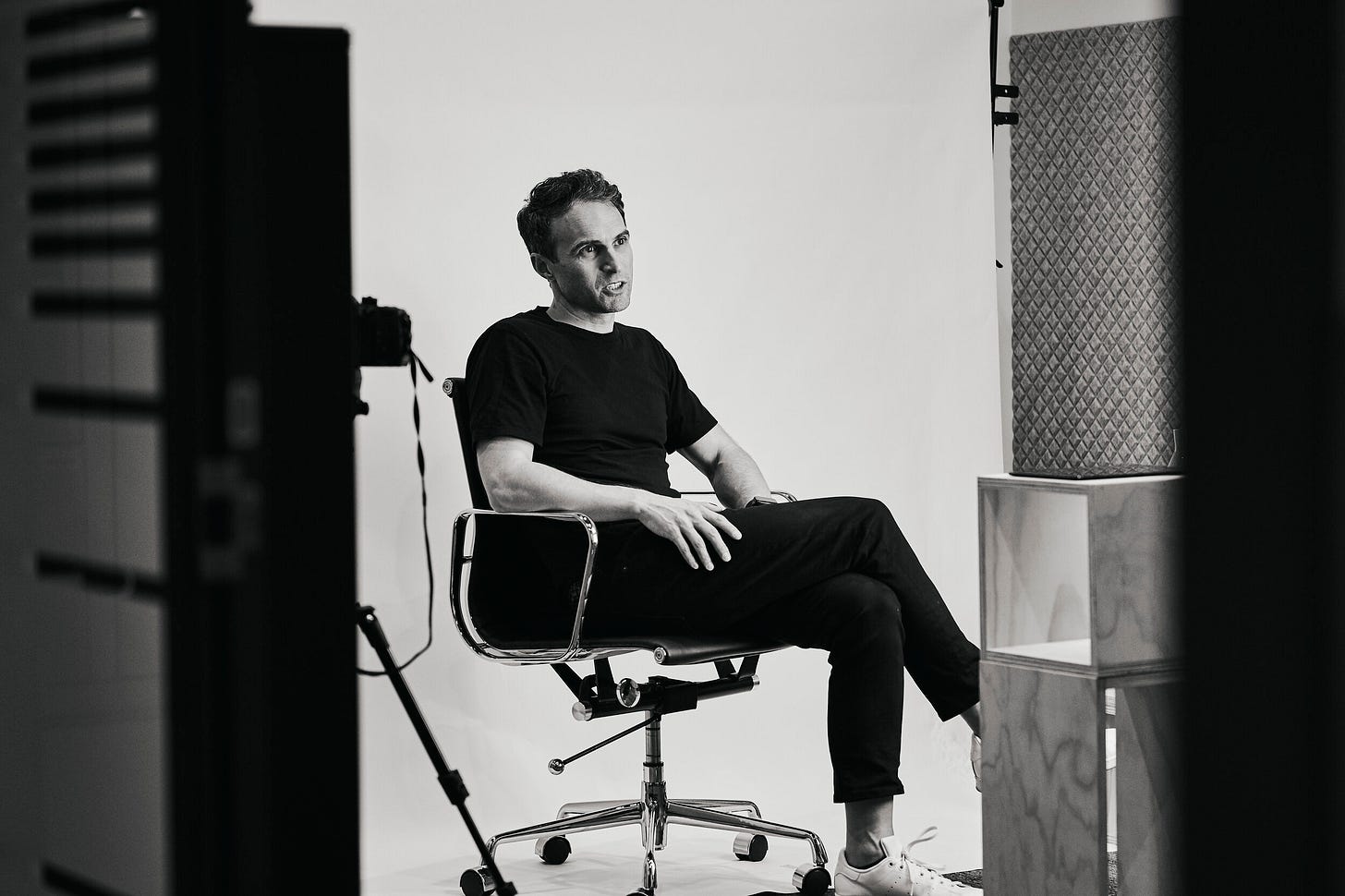Hello dear reader,
Just a quick note to share a new video on aphantasia I recently posted. I’ll be making more videos moving forward and will make sure I send them out here so you don’t miss any. The first few are a series about aphantasia: here is the second one:
Mental meanderings
What are some of the things in your life you have noticed due to aphantasia?
If you have very strong imagery, aka Hyperphantasia - how do you think it has changed your life?
Let us know in the comments below!







Hi Joel,
Thanks for, and congrats on, your important work.
The BELOW is from my draft memoir.
If it's too long for here, I'm happy to email it to you.
Best wishes,
David
----------------------------------------
I spy in my mind’s eye -- nothing
I’ve always known that I have no visual memory. Ask me to conjure up a sunset in my mind’s eye, or a shop that I regularly visit, and my memory is vague at best, and more often nothing registers. Even the letters and notes in folders don’t bring back images. I’ve always thought of “the mind’s eye” as being a metaphor.
Now, a few years later in my mid-70s, I come across a celebrated Facebook post. For Blake Ross, a writer and tech programmer at Facebook and Firefox, the news that other people can visualise things mugged him at age 30.
“I just learned something about you, and it’s blowing my goddamned mind” he wrote. “I have never visualized anything in my entire life. I can’t “see” my father’s face or a bouncing blue ball, my childhood bedroom, or the run I went on ten minutes ago. I thought “counting sheep” was a metaphor. I’m 30 years old, and I never knew a human could do any of this. And it is blowing my goddamned mind.”
He's describing me!
Shortly after, I hear on Radio National a report on a study of 21 people who say they are unable to summon images to their mind's eye. Dr Adam Zeman, an English cognitive neurologist, has labelled this Aphantasia, or “the absence of fantasy”. The phenomenon was first described by Francis Dalton in 1880, but it has remained relatively unstudied. Zeman’s 2015 study was reported widely in the media -- whereupon he was inundated with more than 10,000 communications from people saying things like:
“I’ve spent my entire life explaining to people that I can’t conjure a mental image of a person or a place to save my life.”
Dr Zeman estimates that about 2 per cent of people have this Aphantasia, but because it's not yet a recognizable, everyday term, people can go their whole lives without even learning it exists, let alone realising they have it.
This resonates with me. Might I have Aphantasia? I email Dr Zeman and ask to do his tests. The result? Yes, I have it as well. I am not making this up! I’m in good company here too. Dr Oliver Sacks had it. The best way I can describe my experience is:
I am fully sighted in the present.
But I am blind in the past, blind in the future, blind in the imagination. Blind in the mind’s eye.
That doesn’t mean that I can’t remember the past, can’t imagine the future, can’t be creative – people who are blind can do all these things. It’s just that, for me, these activities are not accompanied by pictures.
“So you’re writing this memoir with a disability,” says a fellow memoir writer. It certainly feels like that to me. That’s why I never could have written this memoir without all those letters and notes that I squirreled away all my life. By contrast, Dr Zeman said on the RN program:
“I don’t think of Aphantasia as a disorder at all. I think of it as an intriguing variation in human experience. It reminds us that we are all very different, and that these differences are often invisible to outsiders, but often also invisible to the persons themselves.”
I have long believed that we differ on many invisible dimensions, and here is one. It has certainly been invisible to me. You don’t know what you don’t know. I thought it was the same for everybody. Sometimes, I’m a slow learner. It has taken me 45 years longer than Facebook Man to realise I was wrong.
How do I feel about all this? When I discover that most people can indeed see absent items in their “mind’s eye”, I am amazed, bemused, sorrowful at what I’m missing, envious -- and I understand some old things anew. My counsellor is empathic, but she adds an alternative way of looking at it.
“You don’t know how lucky you are, David. I’m a super-visualiser, and it often works against me. I hear graphic details from a client about a suicide, and I have nightmares about it for weeks.”
My counsellor is right. I am not haunted by visions of my son Michael’s lifeless body in his cradle. I don’t have nightmares; my dreams don’t have vision in them, and I almost never remember them. More generally, research shows that people who can’t visualise are less likely to suffer from PTSD; they don’t have intrusive flashbacks.
Most important, my not being distracted by visual images of the past, or the future, or what might have been, helps me to stay in the present, to “be here now”, which has always been one of my main aims in life. So being unable to visualise is deeply disappointing, and a handicap -- but it also has strong positives for me.
------------------------------------
Dr David Morawetz
Counselling Psychologist
Founder and Director, Social Justice Fund
(a fund of the Australian Communities Foundation)
Former Director, The Australia Institute
Former Director, Australia21
Former Assoc Prof of Economics at Boston University
Former Economic Consultant to the World Bank
e-mail: morawetz@bigpond.com
http://www.sleepbetter.com.au
18 Mangarra Road, Canterbury, Victoria 3126, Australia
Mobile: 0439 363 125
One of the things I have noticed after my 76 years of loving singing and playing musical instruments, is that I cannot count beats. I can keep a beat just fine, but if I am required to count the beats before I come in with my part, I can’t do it. I’ve found that when I try and count, I have to think of beat number 3 or 4. Of course the beat has moved on by then, and there is no way for me to recover. I have learned to watch the conductor for entry points, but there are/have been songs and music that I would never be the first to come in – The Messiah being the most noted.
The only way I can repeat the alphabet backwards, is to start from the beginning each time I verbalize the last 3 or 4 letters. Then I have to lip speak ABCD….again, till I get to the last letters I spoke, say the next 3 or 4, and then I have to start over. It takes me a number of times to get the whole alphabet in reverse. Then I cannot say the whole thing backwards.
I am an artist of sorts, but I cannot paint a scene or something realistic. I sculpt, but if I try to make a replica, I have trouble, as I cannot remember the image of what I see, when I go back to the sculpture. So pretty much everything I sculpt is what I feel it should look like. I also cannot build an image using clay. I carve soapstone, and I have to remove material to create a finished product. I use my mind to see an image in the stone, and then try to capture that image. The image changes a lot from start to finish. I started carving a bear once, but ended up making a pretty cool frog.I do make furniture from scratch, but I loathe making anything square or rectangle.
My dad was a painter, but my best drawings are stick figures. At 76, I cannot draw perspectives very well. I can’t figure out how to make a flat paper into a multi perspective anything. I know a straight line can be an angle on a flat piece of paper, but can't wrap my mind around creating a full fledged perspective drawing out of a flat piece of paper.
I built houses, designing quite a few, but I always did the blueprints, and let a designer do all the perspective drawings of my buildings. Blueprints don’t have perspective – just squares and angles.
I hope this gives you some examples of dealing with Aphantasia from birth to age 76.
Jarles alberg
.Dear Joel, I think you are responsible for me finding out about aphantasia some 10 years ago., Thank you for this amazing discovery I have been a paid member to some of the Aphantasia things, but I cannot figure out where to send money anymore. I had no luck joining Discord, and finally quit trying. I'll be happy to re - up with your site, especially if it is the definitive site I can use and maybe post more often.